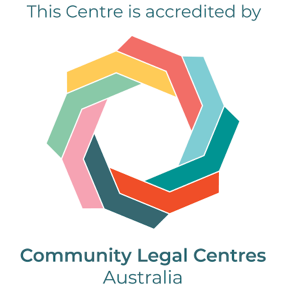Justice Support Centre is committed to protecting the privacy of its employees, volunteers, contractors and clients. Our Privacy Officer’s contact details are provided below. The Privacy Officer is the first point of contact for privacy complaints or queries.
Our Full Privacy Policy is provided at the bottom of this webpage, after the Summary.
“Personal information” means information that can be used to identify someone.
To provide domestic and family violence services and legal services and to employ staff, Justice Support Centre needs to collect personal information. Some information collected may be sensitive information such as information about health, religious beliefs, sexual orientation or criminal record.
A list of the types of personal information collected by Justice Support Centre is available in the full version of this policy and collection statement.
Justice Support Centre may collect personal information:
Other websites
The Justice Support Centre website may contain links to other websites, including social media sites where Justice Support Centre may have a profile. Justice Support Centre is not responsible for the privacy practices of other websites that may be linked to.
Analytics and cookies
To improve visitors’ experience on the Justice Support Centre site, ‘cookies’ may be used. Individuals may refuse the use of cookies by choosing the appropriate settings on their browser.
The Justice Support Centre website uses Google Analytics, a service which sends website traffic data to Google servers in the United States.
Individuals can opt out of Google Analytics if they disable or refuse the cookie, disable JavaScript, or use the opt-out service provided by Google.
How personal information is stored by Justice Support Centre depends on how the information was received and the purpose of the information. A list of the ways Justice Support Centre stores personal information is available in the full version of this policy and collection statement.
When Justice Support Centre no longer needs to store personal information or is no longer required by law to store personal information, it will take all reasonable steps to destroy or permanently de-identify that information.
If individuals choose not to provide all the personal information that Justice Support Centre requests it may limit how Justice Support Centre is able to interact with an individual and may prevent Justice Support Centre providing legal services and domestic and family violence services.
Justice Support Centre collects personal information so it can perform its service delivery activities and to provide quality services to its clients. A list of the purposes for which Justice Support Centre collects, holds, uses and discloses personal information is available in the full version of this policy and collection statement
Justice Support Centre may disclose personal information as part of its service delivery and as part of its business functions to:
Justice Support Centre will never sell or license individuals’ personal information. Justice Support Centre will never disclose personal information to an overseas entity.
Justice Support Centre will take all reasonable steps to keep personal information accurate and up to date. Individuals have the right to request access to their personal information and may ask Justice Support Centre to update or correct personal information.
Justice Support Centre welcomes feedback about privacy issues and will respond to questions and complaints promptly. To make complaints or queries about privacy, individuals can contact the Justice Support Centre Privacy Officer using the details below. If Justice Support Centre takes more than 30 days to respond to a privacy complaint, or if someone is dissatisfied with the outcome, a complaint can be made to the Privacy Commissioner at the Office of the Australian Information Commissioner. The OAIC can be contacted on 1300 363 992 or at www.oaic.gov.au.
Privacy Officer contact details
To contact our Privacy Officer please use the following details:
Privacy Officer, Mr Marc Haynes
By email: marc@justicesupportcentre.org.au
By mail: Mr Marc Haynes, Privacy Officer,
Justice Support Centre, PO Box 3558
Bankstown Square, NSW 2200
Justice Support Centre is committed to protecting the privacy of your personal information.
Justice Support Centre complies with the Privacy Act, 1988 (Cth) (“Privacy Act”) and the Australian Privacy Principles (APPs) which regulate the way in which we can collect, store, use and disclose personal information.
What is personal information?
Personal information is information or an opinion about an individual or about an individual who is reasonably identifiable.
What types of personal information do we collect?
We collect and hold personal information if:
We may collect the following types of personal information. Additional types of personal information may also be collected depending on the nature of our dealings with you:
Some personal information such as information about a person’s health, religious beliefs and affiliations, ethnic or racial origin, sexual preferences and or practices or criminal record is sensitive and requires a higher level of protection under the Privacy Act. We may collect your sensitive information when we have your consent or the collection is required by law and when collection is reasonably necessary for us to carry out one or more of our functions or activities.
How do we collect and hold personal information?
We collect personal information in a number of ways:
Website use
Other websites
Articles on our website may include embedded content (e.g. videos, images, articles). Embedded content from other websites behaves in the same way as if the visitor has visited the other website.
These websites may collect data about individuals, use cookies, embed additional third-party tracking, and monitor interaction with that embedded content, including tracking interaction with the embedded content if someone has an account and is logged in to that website.
Our website may contain links to other websites for your convenience, including social media sites where we may have a profile. We are not responsible for the privacy or security practices of those websites. We suggest you read the privacy policies of those websites before you supply any personal information to them.
Analytics
To improve visitors’ experience on our website, ‘cookies’ may be used. A cookie is a small text file that the Justice Support Centre site may place on another computer as a tool to remember preferences. Individuals may refuse the use of cookies by choosing the appropriate settings on their browser.
Our website uses Google Analytics, a service which sends website traffic data to Google servers in the United States. Google Analytics does not identify individual users or link an IP address with other data held by Google. We use reports provided by Google Analytics to help understand website traffic and webpage usage.
When using our website, individuals are consenting to the processing of data about them by Google in the way it is described in Google’s Privacy Policy and so we can use Google Analytics as set out above. Individuals can opt out of Google Analytics if they disable or refuse the cookie, disable JavaScript, or use the opt-out service provided by Google.
How we store, secure and handle personal information
We hold personal information in both hard copy and electronic form. We ensure that hard copy files are stored securely.
The steps we take to secure personal information we hold include:
When we no longer need to store personal information or it is no longer required by law we will take all reasonable steps to destroy or permanently de-identify that information.
What would happen if we were not able to collect your personal information?
If individuals choose not to provide all the personal information that we request it may limit how we are able to interact with an individual and may prevent us providing services.
If we did not collect personal information:
Why do we collect, hold, use and disclose personal information:
We collect, hold, use and disclose personal information so that we can provide our services and enable us to carry out our functions. We only use and disclose your personal information where the use or disclosure is lawful.
The main purposes are as follows:
To whom may we disclose personal information?
We comply with legislation such as the Crimes (Domestic and Personal Violence) Amendment (Information Sharing) Act 2013 (NSW) and Part 13A of the Crimes (Domestic and Personal Violence) Act 2007 which facilitate the sharing of personal information for the purpose of providing domestic and family violence support services to people who are subject to a domestic violence threat. We also comply with mandatory reporting requirements in the Children and Young Persons (Care and Protection) Act 1998 (NSW).
It may be necessary for us to disclose your personal information to others as part of our delivery of services to you and as part of our functions. This includes to:
We proceed on the basis that law enforcement agencies and government departments comply with the Privacy Act and the APPs in relation to any personal information provided to them.
Otherwise if we disclose personal information to other third parties, we will do so with your consent where required and will take reasonable steps to satisfy ourselves that the third party will comply with keep personal information confidential, and that it has processes and policies in place to comply with the Privacy Act and the APPs.
Access and correction of personal information
We will take reasonable steps to provide you with access to your personal information.
We will also take reasonable steps to update or correct personal information if we are satisfied that it is inaccurate, incomplete, out of date or misleading. If we have provided your personal information to third parties we will also inform them of the correction where you ask us to do so unless it is impractical or unlawful to do so. We are not able to insist that third parties correct your personal information.
If you wish us to correct your personal information, in the first instance, please contact the staff member with whom you have had contact. If you are unable to have your personal information corrected by your staff contact or if you require access to detailed personal information about you that we may hold in our files, please contact our Privacy Officer whose details appear below. We may need to verify your identity before we action your request.
In some circumstances, we may refuse access to personal information such as where disclosure may unreasonably impact another individual or where authorised by law. If access is refused, we will provide written reasons for the refusal and information about how to make a complaint about the refusal.
Complaints
We welcome feedback about privacy issues and will respond to questions and complaints promptly. If you have a complaint or query about how we have handled your personal information, please contact our Privacy Officer using the details below. If we take more than 30 days to respond to your complaint, or if you are dissatisfied with the outcome, you can make a complaint to the Privacy Commissioner at the Office of the Australian Information Commissioner (OAIC ) who can be contacted on 1300 363 992 or at www.oaic.gov.au.
Contacting us
Privacy Officer, Mr Marc Haynes
By email: marc@justicesupportcentre.org.au
By mail: Mr Marc Haynes, Privacy Officer, Justice Support Centre, PO Box 3558
Bankstown Square, NSW 2200
We acknowledge the Traditional Custodians of the lands, skies and waterways in which we live and work, the Gadigal, Cabrogal, Darug and Eora people. We pay our respects to the Aboriginal and Torres Strait Islander clients, partners and community leaders.
Level 4, 2-14 Meredith St, Bankstown
Darug & Eora Country, NSW 2200

